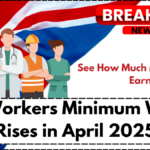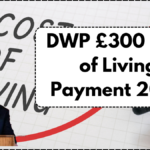As of April 2025, the Department for Work and Pensions (DWP) has implemented significant updates to eligibility rules and benefit structures for Personal Independence Payment (PIP), Universal Credit, and Cost of Living Allowances. These changes aim to better target financial support to those facing increased hardship amid ongoing cost-of-living pressures in the UK.

DWP Eligibility Criteria for PIP in 2025
The Personal Independence Payment (PIP) continues to be a crucial benefit for individuals living with long-term health conditions or disabilities. In 2025, the DWP expanded its summer financial support initiative through the Household Support Fund, aimed at addressing the increasing living expenses affecting vulnerable households.
To qualify for PIP under the revised criteria:
- Applicants must be aged between 16 and State Pension age.
- They must be residing in the UK and meet habitual residency requirements.
- The applicant must be living with a medical condition or disability that has lasted, or is expected to last, at least 12 months.
- Eligibility is assessed based on how the condition impacts daily living or mobility needs, not solely on diagnosis.
This benefit is not means-tested, meaning savings or income do not directly affect eligibility. However, medical evidence and an assessment by an independent health professional are required.
Updated Universal Credit Eligibility Criteria in 2025
Universal Credit continues to simplify welfare support by combining several legacy benefits into a single monthly payment. The 2025 updates focus on fine-tuning eligibility for those on limited income.
New Universal Credit criteria include:
- Applicants must be aged 18 or over and below State Pension age.
- Must have total savings and assets under £16,000.
- Eligible if unemployed, on a low income, or working part-time.
- Individuals with disabilities, those requiring special medical equipment, or who have additional care needs are prioritized.
- Support is also available for carers, parents, and people with housing costs.
Those currently receiving Child Tax Credit, Housing Benefit, or Employment and Support Allowance may be migrated to Universal Credit. Applications are typically made online, with support available for those who struggle with digital access.
Revised Criteria for Cost of Living Payments and Allowances
The 2025 cost of living payments aim to support people most affected by inflation, rising bills, and healthcare costs. These one-off or periodic payments are distributed through local authorities using allocations from the Household Support Fund.
Eligibility requirements include:
- Individuals who are medically unfit for work due to long-term illness or disability.
- Pensioners receiving the Guarantee Credit part of Pension Credit.
- People on income-based Employment and Support Allowance (ESA).
- Households with children eligible for free school meals.
- Low-income earners who fall below the national poverty threshold.
The focus is on flexible local administration. Councils have autonomy to identify at-risk residents and direct resources accordingly, whether for utility bills, food support, or essential equipment.
2025 DWP Benefit Eligibility Summary Table
| Benefit Type | Age Requirement | Income/Asset Cap | Key Eligibility Factors |
|---|---|---|---|
| Personal Independence Payment (PIP) | 16 to State Pension age | Not means-tested | Long-term disability/medical condition; mobility or daily living needs |
| Universal Credit | 18 to State Pension age | £16,000 or less | Low income/unemployed; health/disability needs; caring responsibilities |
| Cost of Living Payments | Varies | Income-based | Pensioners, ESA recipients, free school meal families, low-income workers |
Conclusion
The 2025 updates to DWP benefits reflect the government’s continued response to rising living costs and socioeconomic challenges. By refining eligibility criteria and extending targeted financial support through local authorities, the DWP aims to reach the most vulnerable. Applicants are encouraged to review the latest conditions and apply early, as funds and allowances may be time-sensitive or limited by council discretion.
FAQs
What is the Household Support Fund?
The Household Support Fund is a government initiative extended into 2025, providing councils with funding to assist residents struggling with basic living costs.
Who should apply for PIP?
Anyone aged 16 to State Pension age with a long-term health condition that significantly affects their mobility or ability to perform daily tasks.
How often are cost of living payments given?
These are typically one-off or seasonal payments, depending on government budgeting and local council allocations.
Can I get both Universal Credit and PIP?
Yes, these benefits are separate. PIP is non-means-tested, so receiving it doesn’t affect your Universal Credit entitlement.
What if my application is denied?
You can request a mandatory reconsideration and, if necessary, appeal to an independent tribunal. Supporting evidence is crucial in this process.
For More Information Click Here
Pari is a passionate writer known for captivating stories that blend imagination and reality. Inspired by travel, history, and everyday moments, Pari crafts narratives that resonate deeply with readers.




